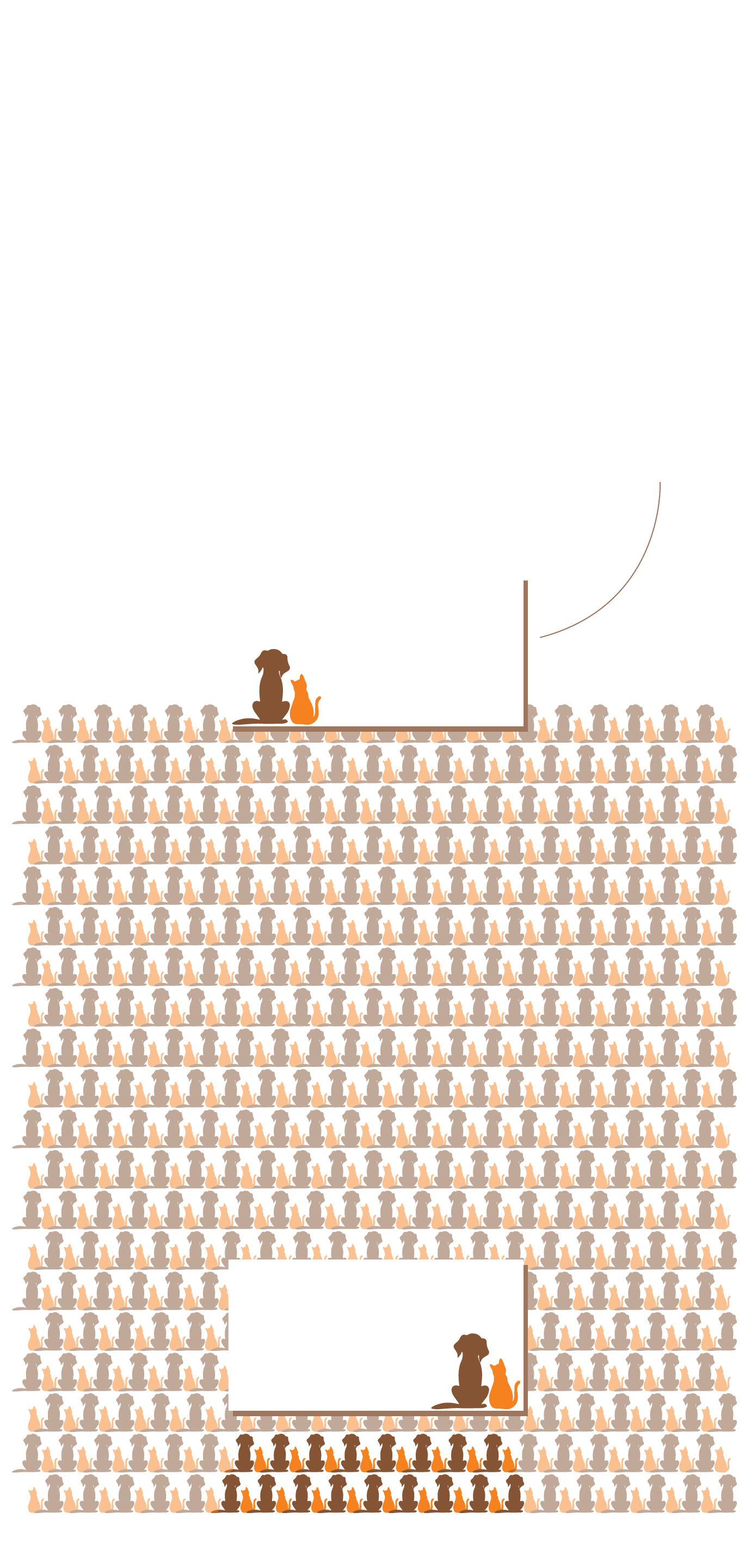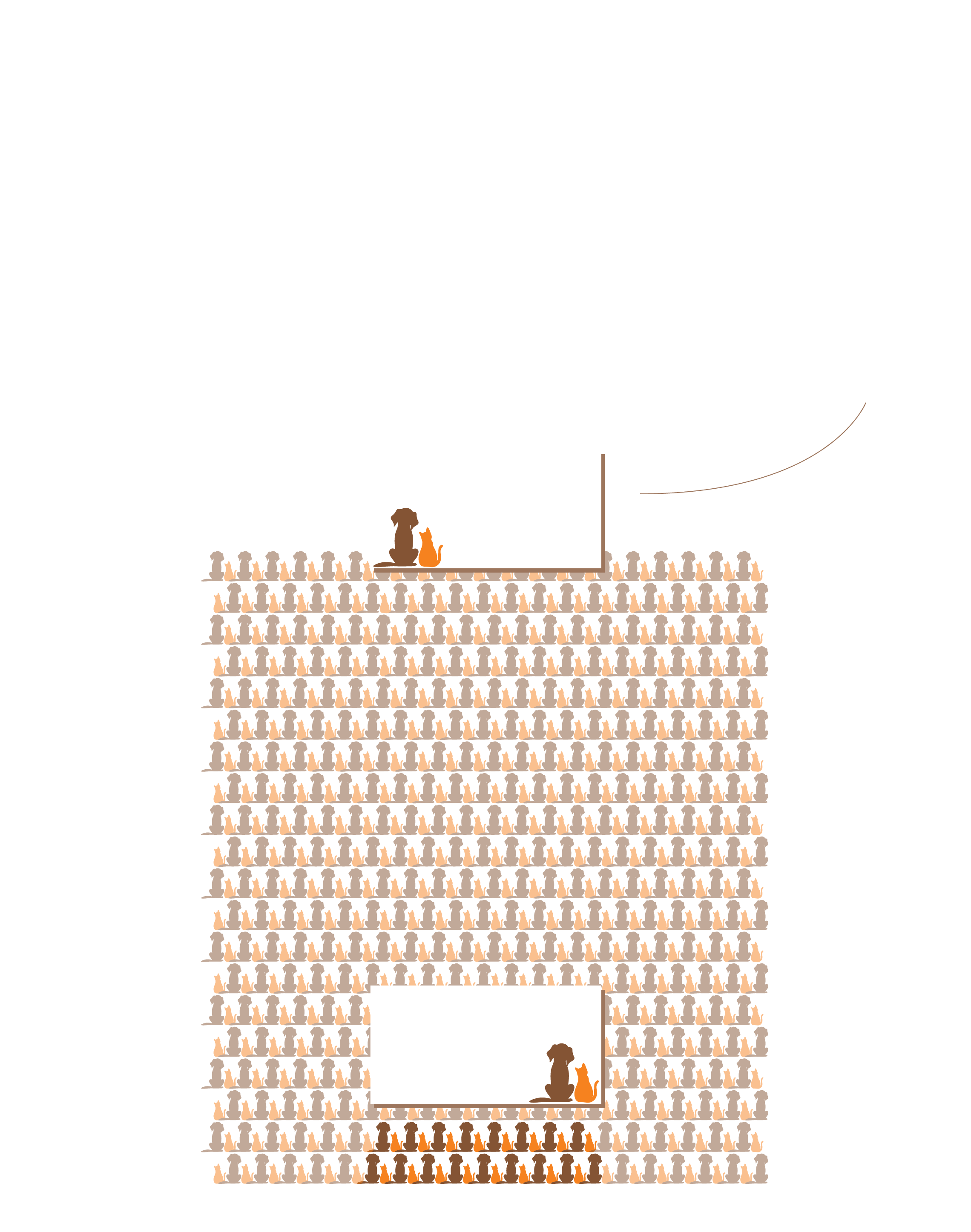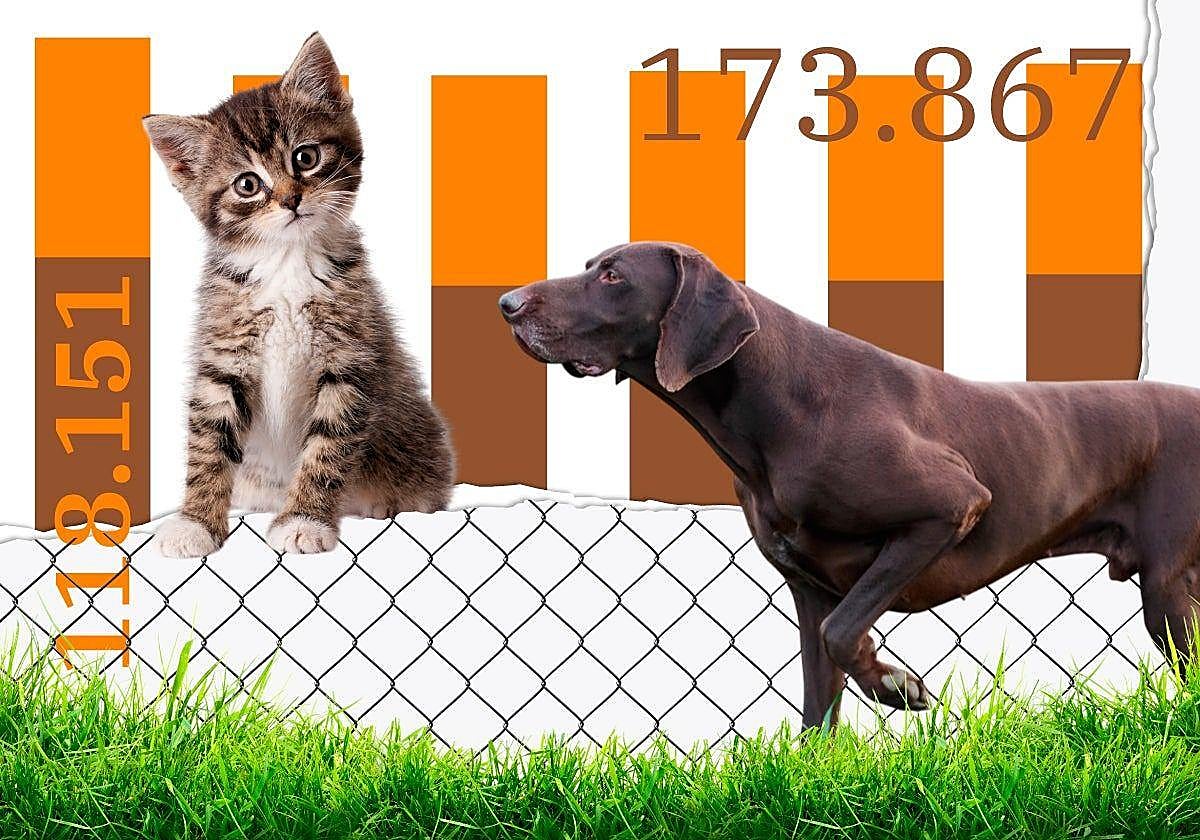People in Spain are abandoning more dogs and cats: 33 per hour
Animal shelters registered 292,000 animal admissions in 2024, nearly 2% more than the previous year, and coming close to pre-pandemic levels, so how can we swing the pendulum the other way?
A dog should not be a gift from the Three Kings, nor should a cat be a whim to combat loneliness. The responsibility of owning a pet is greater than getting a toy truck to play with in the sand on the beach or a subscription to a streaming platform. So, while you can use the excuse of wanting a Christmas present to adopt an animal from a shelter, you should bear in mind that you cannot return it, much less abandon it.
However, the number of abandoned dogs and cats in Spain continues to increase to such an extent that pre-pandemic levels are being reached. According to an annual study conducted by the Affinity foundation, more than 292,000 dogs and cats were admitted to shelters in Spain last year. The trend continues upwards.

Shelters have taken in
800
dogs and cats
every day
The equivalent of
33
every hour
Fuente: Fundación Affinity

Shelters have taken in
800
dogs and cats
every day
Which is the same as taking in
33
every hour
Fuente: Fundación Affinity

Shelters have taken in
800
dogs and cats
every day
Which is the same as taking in
33
every hour
Fuente: Fundación Affinity

Shelters have taken in
800
dogs and cats
every day
Which is the same as taking in
33
every hour
Fuente: Fundación Affinity
While it is often thought that the peak in abandonment occurs in summer, the truth is that "the same animals are taken in all year round", says Laura Rodríguez, Affinity's head of public awareness. "Except for cats", she continues, "where we do see an increase in the warmer months, but this is due to their reproductive cycle", as it is in spring and summer when most cases of unwanted litters are born.
Other common reasons include loss of interest in the pet and moving house, the latter reflecting the difficulty in finding pet-friendly housing, as only 5% of rental properties allow pets, according to property website Fotocasa.
Abandonment does not discriminate by age or breed: 60% of the dogs rescued were adults, while in the case of cats, almost half were kittens, highlighting the urgency of promoting responsible sterilisation. "It's our responsibility as owners to go to the vet for advice on the best sterilisation method," Rodríguez reminds us, as "controlling reproduction is our duty" and would "greatly reduce these rates" of abandonment.
Solutions to combat abandonment
The Affinity foundation proposes various initiatives to combat the abandonment of domestic animals, such as dogs and cats. The first of these is identification. "There are many animals that get lost", says Rodríguez, "identification rates are still very low and we need animals to be identified because, in addition to being mandatory, it is absolutely necessary to recover them." While 25% of dogs arriving at shelters have microchips, only 5% of cats are chipped.
Similarly, education is important too, "so that the bond with the animal and its behaviour is the best possible", says Rodríguez. Moreover, so that people learn what it means to live with an animal, "we have to have realistic expectations."
Finally, another strategy would be more adoption, "which doesn't reduce the abandonment rate, but it does tip the scales more in our favour, so that people who are considering acquiring a pet can do so via the adoption route and get those animals out of the shelters", says Rodríguez.
Adoption
Although abandonment and adoption are not directly related, it has been observed that, in recent years, both adoptions and abandonments have increased. Laura Rodríguez notes that "we have gone from adopting 45% of the animals arriving at shelters in 2023 to 52% in 2024."
Animal abandonment in Spain remains an alarming reality. The numbers speak for themselves: more than 292,000 dogs and cats were admitted to animal shelters in 2024. Faced with this, the Affinity foundation insists that the solution lies in prevention: microchipping our pets, encouraging responsible sterilisation, educating people about living with animals and supporting adoption as an ethical and conscious way of bringing that four-legged, furry friend into the home.

